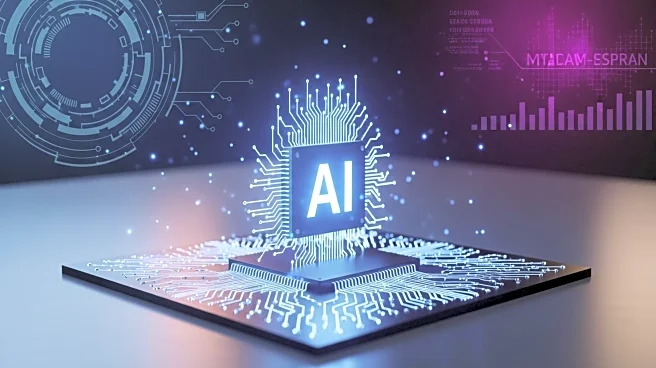What is the story about?
What's Happening?
A recent survey conducted by Resume.org reveals that nearly 4 in 10 U.S. companies plan to replace workers with artificial intelligence (AI) by the end of 2026. Currently, almost 30% of companies have already integrated AI to replace certain job roles. The survey, which included 1,000 U.S. business leaders, highlights a trend towards reducing routine and process-driven roles, while creating new job categories focused on AI oversight, data ethics, and human-AI collaboration. Economic uncertainty, trade policy, and AI are cited as primary reasons for workforce reductions, with high-salary employees and those lacking AI-related skills facing the highest risk of layoffs.
Why It's Important?
The shift towards AI-driven workforces is set to dramatically reshape the U.S. job market over the next few years. This transition could lead to significant job displacement, particularly affecting high-salary roles and employees without AI skills. As companies prioritize automation, there is a growing need for workers to reskill in AI and emerging technologies. This change emphasizes the importance of adaptability, critical thinking, and emotional intelligence as key differentiators for top talent. The broader impact on the labor market could include increased efficiency and cost savings for businesses, but also potential challenges in maintaining employee morale and retention.
What's Next?
As AI adoption continues, companies are likely to focus on upskilling their workforce to balance digital and human skills. This approach aims to enhance employee engagement and retention amidst ongoing layoffs. The Federal Reserve Bank of New York suggests that while some companies predict AI-related layoffs, the overall labor market may not experience major disruptions. However, the trend towards reactive workforce management could lead to further morale issues and loss of critical skills if not addressed with strategic planning.
Beyond the Headlines
The ethical implications of AI replacing human jobs raise questions about the future of work and the role of technology in society. As AI becomes more integrated into business operations, companies must navigate the balance between technological advancement and human employment. This shift may also influence public policy and labor laws, as stakeholders seek to protect workers' rights and ensure equitable access to reskilling opportunities.















